Preferential Option for the Poor
Extends to All Forms of Poverty
Requires our Action
Rooted in the Gospel
Requires Structural Changes
Requires Conversion
A preferential option for the poor “demands before all else an appreciation of the immense dignity of the poor”.
Pope Francis, 158
Who Are the “Poor”?
The preferential option for the poor “extends not only to material poverty but also to the many forms of cultural and religious poverty.”
Catechism of the Catholic Church, 2444
“For Christians, the poor are not a sociological category, but the very ‘flesh’ of Christ.”
Pope Leo XIV, 10
“In fact, there are many forms of poverty”.
Pope Leo XIV, 9
The Holy Fathers do much to ensure our understanding of “who is poor” avoids a one-dimensional focus.
READ MORE
- Pope Leo XIV – “[L]ove for the poor — whatever the form their poverty may take — is the evangelical hallmark of a Church faithful to the heart of God.” (Dilexi te, 103)
- Pope St. Paul VI – “What are less than human conditions? The material poverty of those who lack the bare necessities of life, and the moral poverty of those who are crushed under the weight of their own self-love” (Popularum Progressio, 21)
- Pope St. John Paul II – “[I]t is well known that there are many other forms of poverty, especially in modern society – not only economic but cultural and spiritual poverty as well.” (Centesimus Annus, 57) “It is not possible to understand man on the basis of economics alone”. (Centesimus Annus, 24)
- Pope Francis – Modernity must contend with three types of “destitution”. This poverty is much worse because it entails a situation “without faith, without support, without hope:” (Message for Lent, 2014, 2)
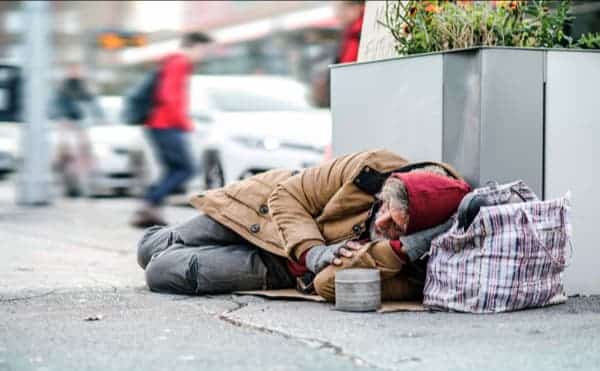
Material Poverty
which “affects those living in conditions opposed to human dignity: those who lack basic rights and needs such as food, water, hygiene, work and the opportunity to develop and grow culturally”. (Pope Francis, 2)

Moral Poverty
“which consists in slavery to vice and sin“. (Pope Francis, 2)
“Contemporary culture seems to have lost the sense of good and evil”. (Pope Benedict XVI, 1)

Spiritual Poverty
“which we experience when we turn away from God and reject his love. If we think we don’t need God…we are headed for a fall. God alone can truly save and free us.” (Pope Francis, 2)
In any case: while “Man needs to be liberated from material oppressions…more profoundly he must be saved from the evils that afflict the spirit.” (Pope Benedict XVI)
“[T]here is only one real kind of poverty: not living as children of God and brothers and sisters of Christ.” (Pope Francis, 1)
All forms of poverty require and deserve a “preferential option”.
A Part of Constant Tradition
“As you did it to one of the least of these my brethren, you did it to me”.
Mt 25:40
READ MORE
“The Church’s love for the poor…is a part of her constant tradition.” (Catechism of the Catholic Church, 2444)
“This is an option…to which the whole tradition of the Church bears witness.” (Pope St. John Paul II, 42)
“Everyone knows that the Fathers of the Church laid down the duty of the rich toward the poor in no uncertain terms.” (Pope St. Paul VI, 23)
“When there is question of defending the rights of individuals, the defenseless and the poor have a claim to special consideration.” (Pope Leo XIII, 37)
Why a Preferential Consideration?
“The richer class has many ways of shielding itself, and stands less in need of help from the State; whereas the mass of the poor have no resources of their own to fall back on”. (Pope Leo XIII, 37)
“Considerations of justice and equity can at times demand that those in power pay more attention to the weaker members of society, since these are at a disadvantage when it comes to defending their own rights and asserting their legitimate interests.” (Pope St. John XXIII, 56)
“By virtue of her own evangelical duty the Church feels called to take her stand beside the poor, to discern the justice of their requests, and to help satisfy them”. (Pope St. John Paul II, 39)
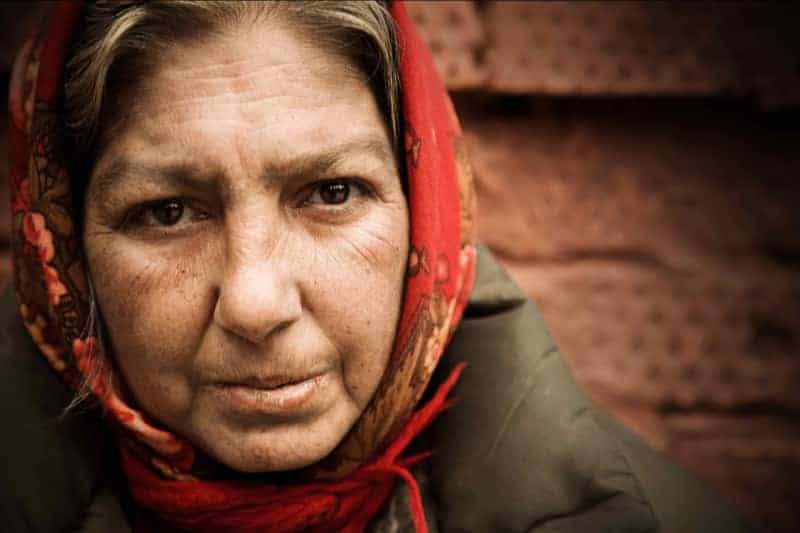

Why a Preferential Consideration?
“The richer class has many ways of shielding itself, and stands less in need of help from the State; whereas the mass of the poor have no resources of their own to fall back on”. (Pope Leo XIII, 37)
“Considerations of justice and equity can at times demand that those in power pay more attention to the weaker members of society, since these are at a disadvantage when it comes to defending their own rights and asserting their legitimate interests.” (Pope St. John XXIII, 56)
“By virtue of her own evangelical duty the Church feels called to take her stand beside the poor, to discern the justice of their requests, and to help satisfy them”. (Pope St. John Paul II, 39)
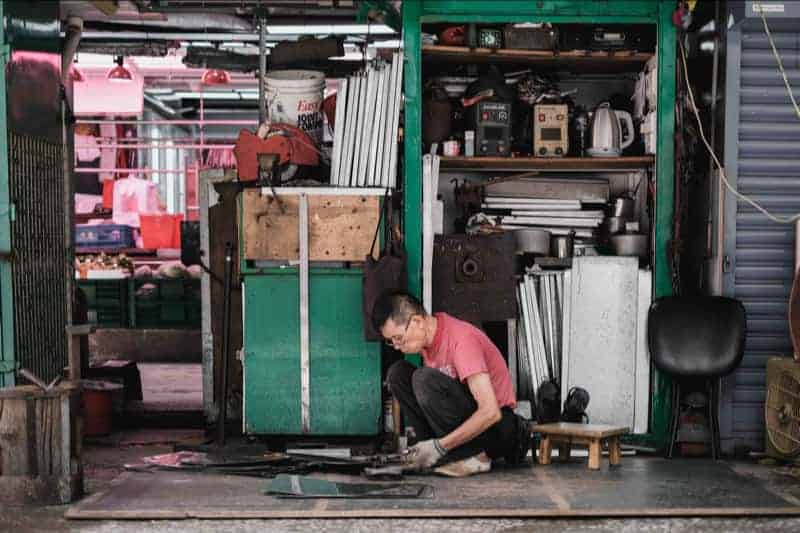
The Responsibility of the Poor
“Every human life is called to some task by God. Endowed with intellect and free will, each man is responsible for his self-fulfillment…he is the chief architect of his own success or failure.” (Pope St. Paul VI, 15)
“Those who are weaker…should not adopt a purely passive attitude or one that is destructive of the social fabric, but, while claiming their legitimate rights, should do what they can for the good of all.” (Pope St. John Paul II, 39)
“The pursuit of life’s necessities is quite legitimate; hence we are duty-bound to do the work which enables us to obtain them: ‘If anyone is unwilling to work, do not let him eat.'” (Pope St. Paul VI, 18)
READ MORE
Utilizing only his talent and willpower, each man can grow in humanity, enhance his personal worth, and perfect himself.” (Pope St. Paul VI, 15)
This applies to poor (developing) nations which only “by making the necessary efforts and sacrifices” can hope to raise their material condition. (Pope St. John Paul II, 35)
But, the “System” does work against some.
Many may not have the means to enable themselves to take their place in society in an effective and dignified way. Some are poor through no fault of their own. These may include the mentally ill, the sick, and the laid off — the many who struggle to “get back on their feet” but can’t – for whatever reason. Circumstances of culture, childhood, even racism may hold individuals back and must be considered.
This is true! If one’s poverty (whether material, moral/cultural or spiritual) rises to the level of “destitution” – where one is “without faith, without support, without hope” (Pope Francis, 2) – they may be unable to become the “chief architect of his own success or failure.” (Pope St. Paul VI, 15)
This Requires Action!
But, some shoulder greater responsibility:
- “To whom much is given, much is expected”. Luke 12:48
- “Everyone must lend a ready hand to this task, particularly those who can do most by reason of their education, their office, or their authority.” (Pope St. Paul VI, 32)
- “Those who are more influential, because they have a greater share of goods and common services, should feel responsible for the weaker and be ready to share with them”. (Pope St. John Paul II, 39)


This Requires Action!
But, some shoulder greater responsibility:
- “To whom much is given, much is expected”. Luke 12:48)
- “Everyone must lend a ready hand to this task, particularly those who can do most by reason of their education, their office, or their authority.” (Pope St. Paul VI, 32)
- “Those who are more influential, because they have a greater share of goods and common services, should feel responsible for the weaker and be ready to share with them”. (Pope St. John Paul II, 39)
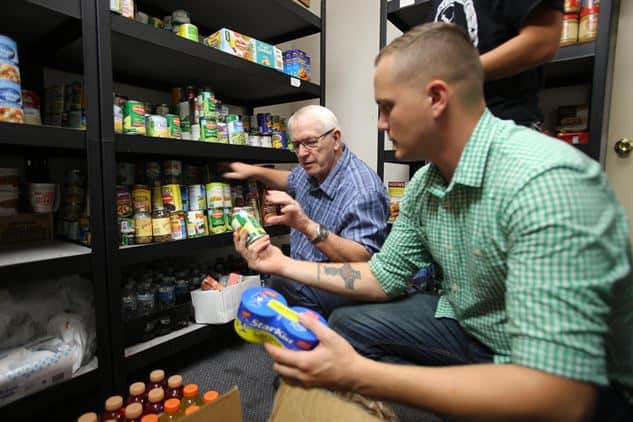
What Must I Do?
“In the context of these reflections, the decision to set out or continue the journey involves, above all, a moral value which men and women of faith recognize as a demand of God’s will, the only true foundation of an absolutely binding ethic.” (Pope St. John Paul II, 38)
“We need to broaden our perspective…We need to grow in a solidarity which ‘would allow all peoples to become the artisans of their destiny’, since ‘every person is called to self-fulfillment.’” (Pope Francis, 190)
Solutions and actions will differ by the type of poverty: material, moral or spiritual and level of analysis (local, state, national and international).
“The greatest service to development, then, is a Christian humanism…Openness to God makes us open towards our brothers and sisters and towards an understanding of life as a joyful task to be accomplished in a spirit of solidarity.” (Pope Benedict XVI, 78)
“Where the poor are concerned, it is not talk that matters; what matters is rolling up our sleeves and putting our faith into practice through a direct involvement, one that cannot be delegated.”
Pope Francis, 7
What Does it Take?

Personal Conversion
“Openness to God makes us open towards our brothers and sisters and towards an understanding of life as a joyful task to be accomplished in a spirit of solidarity.” (Pope Benedict XVI, 78)
“requires attention to spiritual life, a serious consideration of the experiences of trust in God, spiritual fellowship in Christ, reliance upon God’s providence and mercy, love and forgiveness, self-denial, acceptance of others, justice and peace.” (Pope Benedict XVI, 29)
“A concrete commitment to the poor must also be accompanied by a change in mentality that can have an impact at the cultural level.” (Pope Leo XIV, 11)
READ MORE
- The preferential option for the poor: “will never be fully attained unless people see in the poor person, who is asking for help in order to survive, not an annoyance or a burden, but an opportunity for showing kindness and a chance for greater enrichment.” (Pope St. John Paul II, 58)
- In fact “the question of development is closely bound up with our understanding of the human soul”. (Pope Benedict XVI, 76)
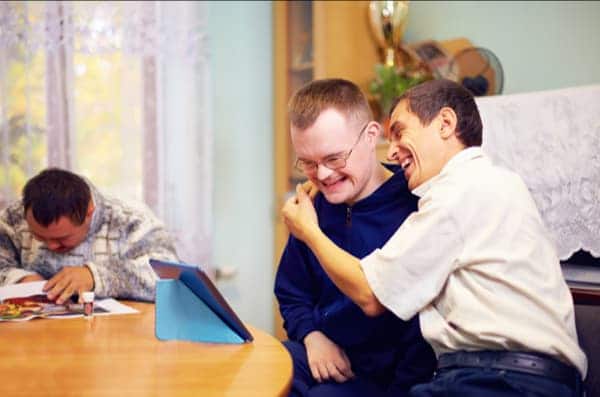
Courage
“to face the risk and the change involved in every authentic attempt to come to the aid of another.” (Pope St. John Paul II, 58)
“It must be reiterated that ‘the more fortunate should renounce some of their rights so as to place their goods more generously at the service of others”. (Pope Francis, 190)
READ MORE
- “This path is long and complex…Nevertheless, one must have the courage to set out on this path, and, where some steps have been taken or a part of the journey made, the courage to go on to the end.” (Pope St. John Paul II, 38)
- “applies equally to our social responsibilities and hence to our manner of living, and to the logical decisions to be made concerning the ownership and use of goods.” (Pope St. John Paul II, 42)
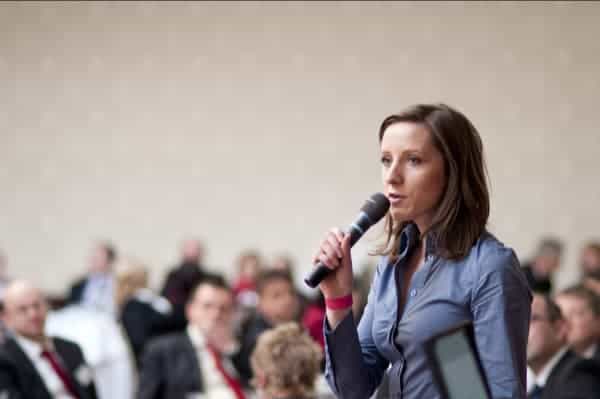
Structural Change
“[I]t requires above all a change of life-styles, of models of production and consumption, and of the established structures of power which today govern societies.” (Pope St. John Paul II, 58)
“Our duty is to continue to insist…that the human person and human dignity are not simply catchwords, but pillars for creating shared rules and structures“. (Pope Francis, 2)
READ MORE
- Let us recall that Catholic social teaching “offers a powerful way of thinking about what the common good requires, and how structures in society can promote or undermine human well-being” (Vincent Cardinal Nichols, Archbishop of Westminster)
How Might This Apply in the U.S.A?
Here, we must again reflect on all forms of poverty.
Material Poverty:
Visit any impoverished town or inner city and it will be clear that material lack is not the key problem. Many who live in the bottom economic quintile do not lack food; water, etc. In fact, they possess many of the consumer goods deemed important by the culture.
READ MORE
- Rather, they lack “the opportunity to develop and grow culturally”. (Pope Francis, 2) They live with rampant drug use, crime, poor education, collapsed family structures, and sexual exploitation. Their lives, in too many cases, tend to be “solitary, poor, nasty, brutish, and short”. (Thomas Hobbes, Leviathan, 1651)
- Focusing only on economic responses (earned income tax credits, minimum wage, etc.) will not cure this ill because, “Of itself, an economic system does not possess criteria for correctly distinguishing new and higher forms of satisfying human needs from artificial new needs.” (Pope St. John Paul II, 36)
“It is not the instrument that must be called to account, but individuals, their moral conscience and their personal and social responsibility.” (Pope Benedict XVI, 36)
Moral Poverty:
The Church is clear, the pathologies eating away at our environment are the fault of our ethical and cultural systems, not economic ones: “The cause of the crisis of these recent years is of a deep ethical nature”. (Pope Francis)
READ MORE
- So, focusing on, “Changing structures without generating new convictions and attitudes will only ensure that those same structures will become, sooner or later, corrupt, oppressive and ineffectual.” (Pope Francis, 189)
- Instead, we have “to look to the deeper causes of this situation: In the last analysis, they are to be found in a current self-centered and materialistic way of thinking that fails to acknowledge the limitations inherent in every creature”. (Pope Benedict XVI)
- “This time of crisis” is “a human crisis: it is the human person that is in crisis! Man himself is in danger of being destroyed!” (Pope Francis)
What is the source of this crisis? Our problems originate “in a profound human crisis: the denial of the primacy of the human person!” (Pope Francis, 55)
Spiritual Poverty:
By allowing the necessary relationship between truth and freedom to become hidden or appear inappropriate for public dialogue, by ignoring ethical and religious dimensions, by abandoning the public square to secularism, we have weakened ourselves.
READ MORE
- Why? Because: “Without God man neither knows which way to go nor even understands who he is”! (Pope Benedict XVI, 78)
- The “ideological rejection of God and an atheism of indifference, oblivious to the Creator and at risk of becoming equally oblivious to human values, constitute some of the chief obstacles to development today.” (Pope Benedict XVI, 78)
- Without God “development is either denied or entrusted exclusively to man, who falls into the trap of thinking he can bring about his own salvation and ends up promoting a dehumanized form of development.” (Pope Benedict XVI, 11)
- ”A humanism which excludes God is an inhuman humanism. Only a humanism open to the Absolute can guide us in the promotion and building of forms of social and civic life — structures, institutions, culture and ethos — without exposing us to the risk of becoming ensnared by the fashions of the moment.” (Pope Benedict XVI, 78)
- “Indeed, what is the origin of all the evils to which Rerum Novarum wished to respond, if not a kind of freedom which, in the area of economic and social activity, cuts itself off from the truth about man?” (Pope St. John Paul II, 4)
Catholic social teaching points out we may have forgotten George Washington’s observation in his farewell address:
“Of all the dispositions and habits which lead to political prosperity, religion and morality are indispensable supports.”
George Washington
Fordham University publishes a yearly Fordham Francis Index considering all aspects of poverty.
FAQs
Q: What is the bottom line?
A: All forms of poverty require and deserve a “preferential option”.
Q: Does the preferential option mean the Church supports a welfare state?
A: No. “By intervening directly and depriving society of its responsibility, the Social Assistance State leads to a loss of human energies and an inordinate increase in public agencies which are dominated more by bureaucratic ways of thinking than by concern for serving their clients, and which are accompanied by an enormous increase in spending. In fact, it would appear that needs are best understood and satisfied by people who are closest to them and who act as neighbors to those in need”. (Pope St. John Paul II, 48)
“Poverty is not fought with welfarism, no, in this way we ‘anaesthetize’ it but we do not fight it. As I have already said in Laudato Si, ‘Helping the poor financially must always be a provisional solution in the face of pressing needs. The broader objective should always be to allow them a dignified life through work’ (Laudato Si, 128). The doorway is work: the door to the dignity of a man is work.” (Pope Francis)
Q: Are my corporal works of mercy enough?
A: Not in a Democracy! Let’s ‘unpack’ that statement:
Charity is a Theological virtue — required of everyone, “a responsibility of each individual member of the faithful” (Pope Benedict XVI, 20) and involves engaging, directly, those in need.
Charity can be expressed in three ways: corporal works of mercy; spiritual works of mercy; and working to implement the tenets of Catholic Social Teaching in society.
Many do not know that “Charity is at the heart of the Church’s social doctrine.” (Pope Benedict XVI, 2) That the practice of Catholic Social Teaching “is the institutional path — we might also call it the political path — of charity, no less excellent and effective than the kind of charity which encounters the neighbor directly, outside the institutional mediation of the polis.” (Pope Benedict XVI, 7)
So, on a practical level, in democratic societies a key way every Catholic can accomplish his charitable obligation is through voting — for individuals and parties which seek “to create the conditions for a worthy and just future. If exercised with basic respect for the life, freedom and dignity of persons, political life can indeed become an outstanding form of charity.” (Pope Francis)
Indeed, participation in politics is a Christian obligation: “We, Christians, cannot ‘play Pilate’ and wash our hands…We must participate in politics because politics is one of the highest forms of charity because it seeks the common good. And Christian lay people must work in politics.” (Pope Francis)





